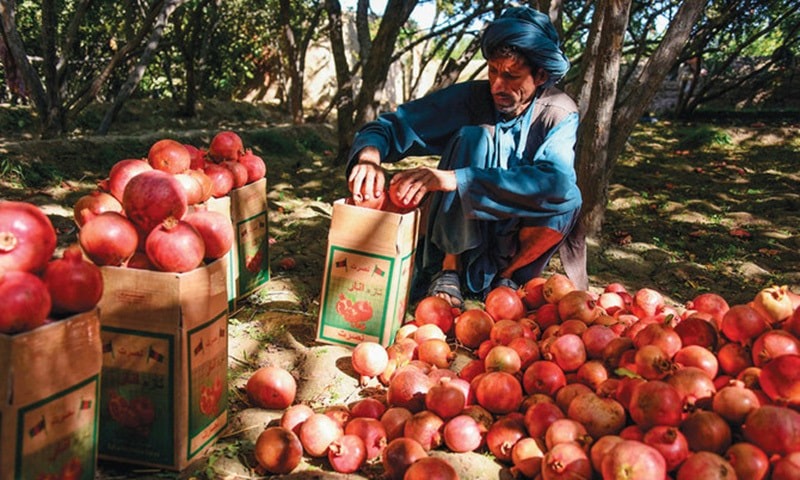ISLAMABAD: Pakistan needs to introduce modern cultivars, improve market infrastructure and post-harvest handling techniques to increase pomegranate production in order to offer better economic benefits to the growers and sufficiently meet the domestic demand.
This was stated by Dr Nurullah, a senior scientific officer with the National Agriculture Research Centre (NARC), while talking to WealthPK.
He said that pomegranate production in Pakistan was limited for various reasons, such as a lack of suitable areas for planting, a lack of farmer awareness, and a slow uptake of new technologies.
“Pomegranate also referred to as the ‘fruit of heaven’ is regarded as one of the best fruits in the world because of its nutritional value. It is a treatment for a variety of diseases as it helps lower cholesterol levels in the body and also contains anti-oxidative qualities. It has a good shelf life of about two weeks, which prevents its early decay and makes it easy for farmers to transport the fruit to market,” he explained.
Nurullah said the fruit was indigenous to northern India and Iran and its main producers were Afghanistan, Iran, Saudi Arabia, India, Palestine, China, some African countries, Italy, and the United States. “There are over 760 different varieties of the fruit around the world.”
“In Pakistan, it is still grown as ‘minor’ fruit as according to Fruit and Vegetable Condiments of Pakistan 2018-19. It is cultivated on just 7,330 hectares producing only 37,613 tonnes per annum. Balochistan is the major producer of pomegranates. The province produced 27,113 tonnes in 2018-19, whereas Khyber Pakhtunkhwa produced 2,298 tonnes and Punjab 8,202 tonnes in the same year in isolated areas on a small scale.”
He said that in 2018-19, Pakistan imported 35,089,960 kilogrammes of pomegranate and exported only 61,789 kilogrammes.
Nurullah said pomegranate thrived in tropical and subtropical climates. “Though it needs loamy, well-drained soils, it can also thrive in salt-affected soil up to a point.”
The NARC scientist said pomegranate production must be increased in Pakistan to generate significant revenue and improve the economic conditions of the fruit’s growers.
Nurullah maintained that being an agro-based economy, Pakistan had the best agroecological regions for producing fruits. “Our climatic and soil conditions are favourable for producing fruits, particularly pomegranates. However, the poor market infrastructure, inadequate post-harvest handling practices, inadequate management, ageing and declining orchards, lack of coordination between research and extension sectors, and lack of farmer awareness are major barriers to enhancing production.”
He recommended that effective measures should be taken to increase the fruit’s production by implementing modern cultivars to make use of Pakistan’s marginal and fallow lands. “The government should reduce the gap between farmers and research facilities,” he suggested.






